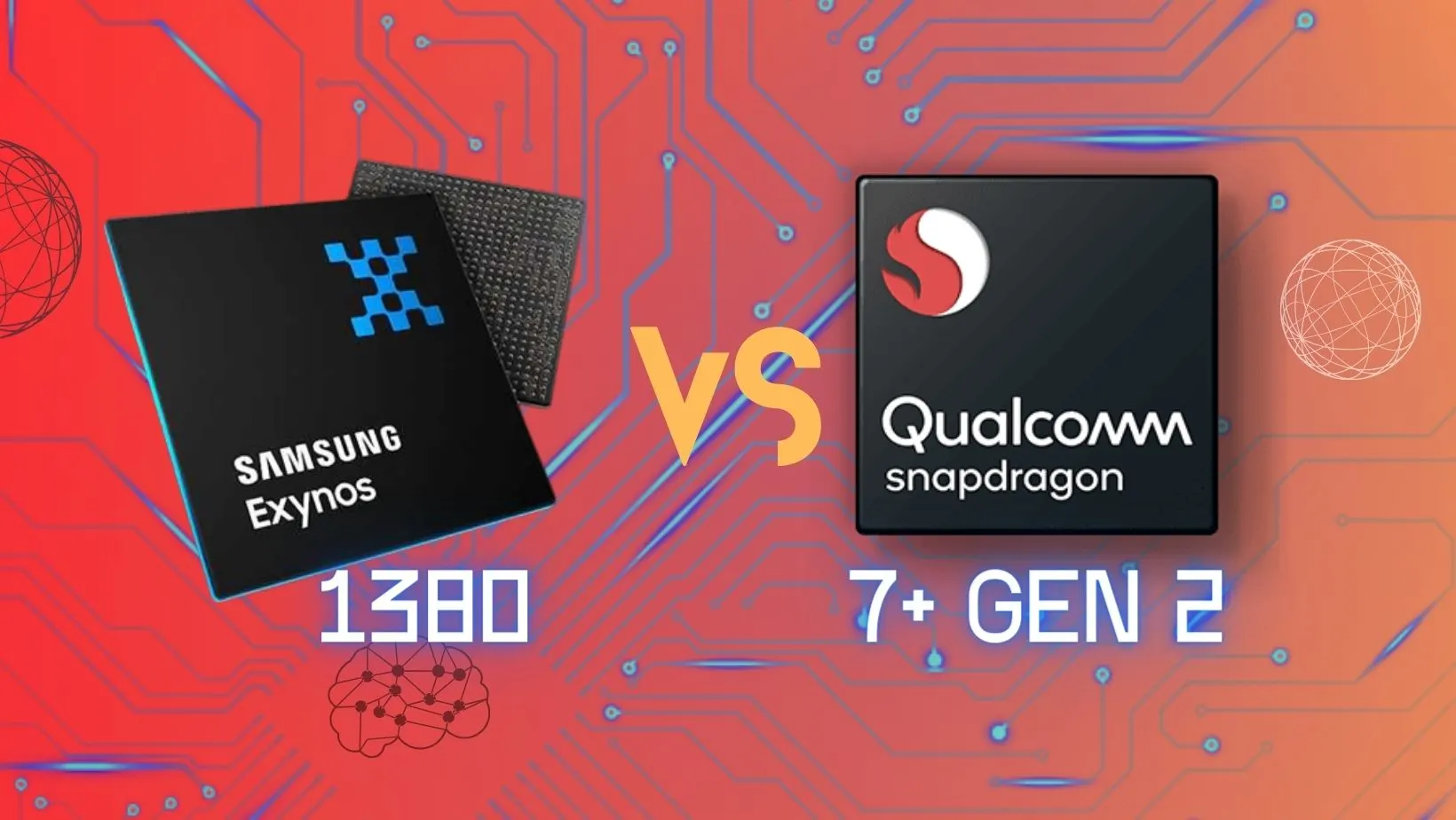Exynos 1380 vs. Snapdragon 7+ Gen 2 - Samsung Takes on a Midrange Rival
Following on the heels of Samsung's return to the midrange is the question "How well do these SoCs perform?" To answer this, we're having a Samsung midrange SoC go up against the ultimate midrange SoC. This is the Exynos 1380 vs Snapdragon 7+ Gen 2.
In the arena of midrange SoCs, there are two very formidable SoCs that are available for SoCs. These are the Exynos 1380 and Snapdragon 7+ Gen 2. Join me as we explore both SoCs, dissecting their specs and performance to determine which SoC reigns supreme.
Announced in February 2023, the Exynos 1380 is an upper midrange SoC from Samsung. It is made exclusively for the Samsung Galaxy A series. It has already made an appearance on devices like the Samsung Galaxy A54 5G, F54, and M54. This signifies a strategic alignment with Samsung's midrange offerings.
The Snapdragon 7+ Gen 2 was announced in March of 2023. It is a formidable successor to its predecessor, the Snapdragon 7 Gen 1. Unlike other SoCs from Qualcomm, smartphone manufacturers have not been queueing up to use this one. Notwithstanding, it has found a noteworthy home in devices like the Poco F5/Redmi Note 12 Turbo. This SoC is certainly one for the future.
With the stage having been set, let's get into the comparison proper.
>> See: Exynos 1380 vs. Snapdragon 7+ Gen 2: Full Specs Comparison
Performance of the Exynos 1380 vs. Snapdragon 7+ Gen 2
In the performance domain, there is no question. The Snapdragon 7+ Gen 2 is the undisputed winner here. Boasting a robust 1+3+4 octa-core configuration (Cortex X2 + Cortex A710 + Cortex A510), it outclasses the Exynos 1380's 4+4 setup (Cortex A78 + Cortex A55). This CPU setup positions the Snapdragon 7+ Gen 2 as the superior performer.
Gaming on the Exynos 1380 vs. Snapdragon 7+ Gen 2
In the gaming arena, the same scenario is repeated. The Adreno 725 GPU of the Snapdragon 7+ Gen 2 also reigns supreme here as well. It eclipses the capabilities of the Mali G68 MP5 embedded in the Exynos 1380. It is not even a contest at this point, the gaming and graphics handling experience on the Snapdragon 7+ Gen 2 is miles better.
RAM and Storage
For memory and storage, we have a surprising draw. Both SoCs employ LPDDR5 RAM and offer support for UFS 3.1.
You may also be interested in:
- Samsung Exynos 1380 vs MediaTek Dimensity 7200
- Snapdragon 7+ Gen 2 vs Snapdragon 870 - Surprise Surprise!
Camera and Video
The camera prowess of both contenders stands shoulder to shoulder, supporting a maximum resolution of 200MP and capable of 4K video recording. However, the Snapdragon 7+ Gen 2 has a significant edge by achieving 4K at 60fps, whilst the Exynos 1380 is limited to 4K at 30fps.
Connectivity
In the connectivity spectrum, the Snapdragon 7+ Gen 2 once again takes the lead. It has support for Bluetooth 5.3, which surpasses the 1380's Bluetooth 5.2. The Snapdragon 7+ Gen 2 also showcases superior 4G and 5G connectivity, which gives it a good advantage in wireless communication.
Battery
The fabrication process used in manufacturing an SoC goes a long way in determining battery efficiency. Here, the Snapdragon 7+ Gen 2's 4nm TSMC process outshines the Exynos 1380's older 5nm Samsung EUV process. As a result, the Snapdragon 7+ Gen 2 is going to be more battery efficient than the Exynos 1380. It's also going to be cooler (temperature) as well.
Conclusion
As the dust settles on this comparison, the Snapdragon 7+ Gen 2 stands tall here. It is vastly superior in performance, gaming, connectivity, and battery efficiency. While the Exynos 1380 displays commendable capabilities, it is certainly no match for the 7+ Gen 2. The Snapdragon 7+ Gen 2, with its balance of processing power and battery efficiency, emerges as the undisputed victor in this faceoff against the Exynos 1380.
